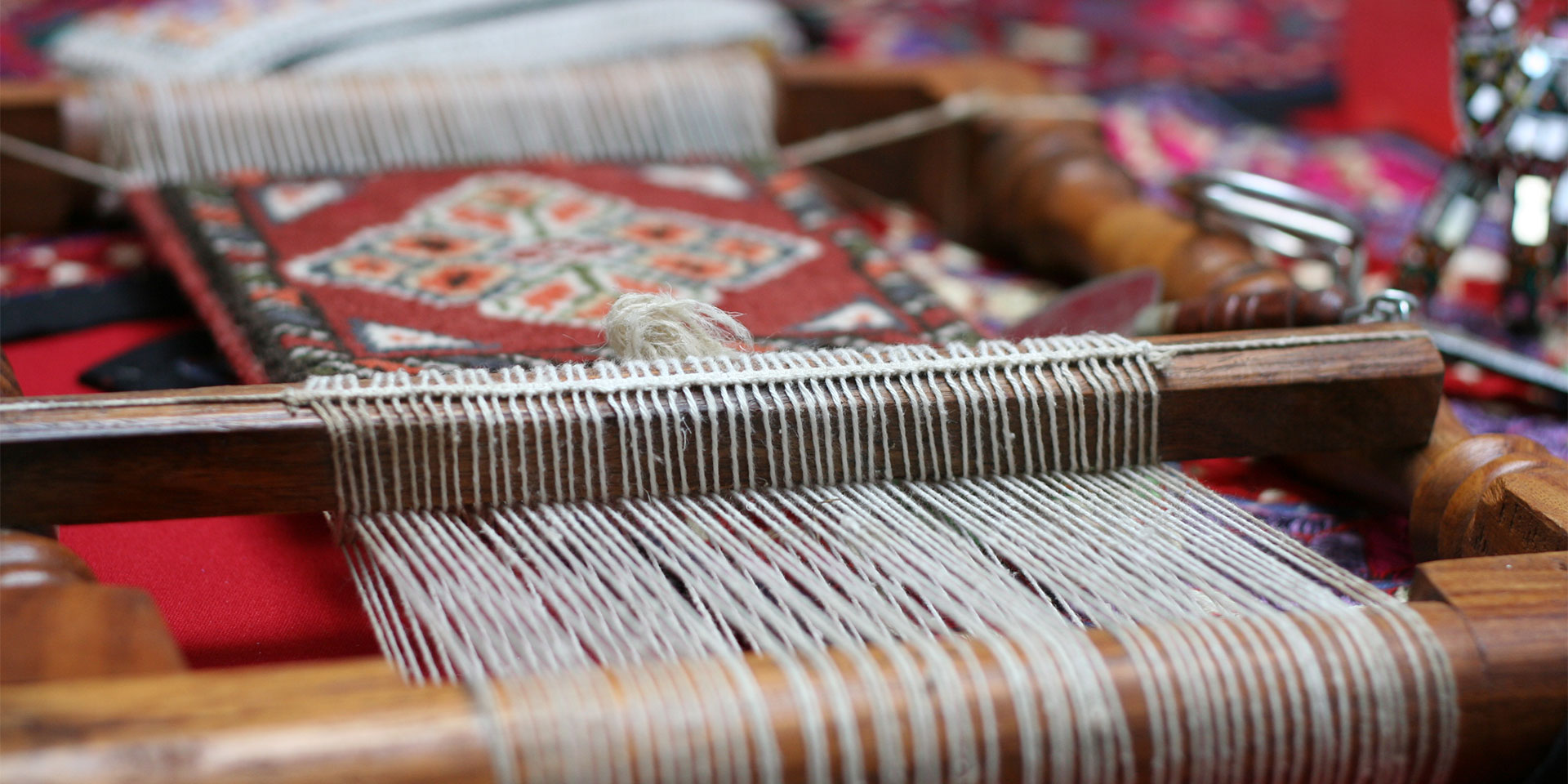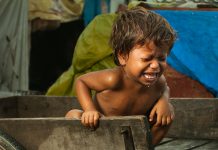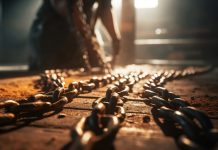When you look into the innocent eyes of a child, you can hardly imagine that someone could intentionally hurt them. Stories of slavery seem to belong to an evil and distant past. However, few of us wonder who makes our clothes or electronic equipment, under what working conditions, and how much they are paid for it. The answers to these questions will likely reveal that it is one of the 10 million child victims of modern slavery that is behind the cheap products we are running after.
Iqbal Masih was born in 1983 in Pakistan. He was only five years old when he got “employed” in a carpet weaving centre to pay off the debt of his stepbrother, who had borrowed 600 Pakistani rupees from his owner (the equivalent of less than $15) to get married. After the first day of work, he returned home with his hands covered in blood and cuts from the knots he tied on the carpets. He noticed that his mother had tears in her eyes, but he assured her that he would do well. The other children from the weaving centre told him that he would quickly get callouses and that his hands would no longer hurt.
His large, curious eyes earned his boss’s sympathy, who had a hard time admonishing him when he left the loom without asking for permission. He was so small and frail that he couldn’t work very long without getting tired. He left the loom every time he got too tired, then came back to work. Because the owner couldn’t bring himself to punish him, he told Iqbal’s mother about the situation and asked her to beat him to prevent him from leaving his work.
Nothing changed, and soon the owner realized that he was losing money because of him. Many already reproached him with being too gentle and told him he would never be able to run a successful business if he behaved like that with his own employees.
Because he could not find a solution with Iqbal, the owner sold him to someone else to get his money back. At the new weaving center, Iqbal was amazed to see that none of the children even looked up when he arrived. Soon he understood why. Two teenage former workers stood behind them and hit them for the slightest misdemeanour. Iqbal tried his best not to upset the new master. He never left the loom, spending 12 hours crouching by the machine each day.
In the room lit by a single light bulb and unventilated (to prevent insects from entering and destroying the fabric) Iqbal befriended several other children. When supervisors were not paying attention or during the poor meal they got (and which was being deducted from their pay), they would talk about their homes. Iqbal was one of the happy few that lived nearby who was taken home by his boss on a minibus, even though all he could do once home was sleep as soon as he got into bed.
The others slept at the factory, crouched under the loom, and many of them did not even know where their home was, what their parents’ names were, or how much they would have to work to pay their relatives’ debts.
Iqbal told them about the outside world, about the fact that free children existed out there, who did not have to work all the time like they did, who could play and rest when they wanted to. To his exhausted friends, what he said was a beautiful but unattainable story. They knew they would most likely die there, next to the looms. They had seen some of the children become lethargic, and no matter how hard they were beaten, they did not want to work anymore. They would crouch, refuse to eat, and eventually die, unknown by anyone else. They were quickly replaced by another child.
One day one of the boys was very ill, had a fever, and could no longer work. The owner, Ghullah, angered that the boy could no longer work, tied him up to the ceiling with his head hanging down. The punishment revolted the children, who began to flee every time someone was not watching them, which increased the anger of the master. He would come and pick them up from home, and when they got to the weaving centre he would tie them up with chains to keep them from running away.
Sometimes they would remain tied to the looms for two days, but fled as soon as they were released. One morning, Iqbal ran away from his master and climbed into a truck with other children and adults. There he met Ehsan Ullah Khan, the leader of the BLLF (Bonded Labor Liberation Fund). With his organisation, Ehsan was fighting to enforce the new Pakistani law banning debt-based work that could never be fully paid because of the landlords’ dishonest practices. It was the first time Iqbal had heard of modern slavery, of the illegality within which he and his friends worked.
Iqbal recounted the working conditions in Ghullah’s weaving center. Ehsan handed him a release paper. Iqbal tried to use the document with the police, but they were not at all willing to apply the law because the weavers bribed them. They laughed at him, beat him, and took him back to work.
Ehsan found out what had happened to him and told him that BLLF had a school where he could enroll. He ran away again, and at the age of ten he entered a school for the first time. He and his family were constantly receiving threats, but nothing scared him enough to return to the weaving center.
For two years, Iqbal was Ehsan’s right hand and a spokesman for the enslaved children. He went with Ehsan to meetings of international organizations around the world and recounted stories about the lives of children working as slaves in Pakistan. During this time, he managed to persuade more than 3,000 children to flee from their masters and seek the help of those in the BLLF.
In 1995, after a visit to the United States, Iqbal was shot dead while riding his bicycle in front of his home. He was only 12 years old. The organization is convinced that the threats of the carpet mafia had been carried out. After that, Ehsan was extradited and banned from returning to Pakistan. He is still working remotely to free slaves from weaving centers and brick factories.
Iqbal dreamed of freeing all those who are still suffering in silence, unknown and ignorant. He wanted to become a lawyer and often said in his speeches: “Children should have pens in their hands, not tools”.[1] Although he failed to fulfill his dream, he managed to taste freedom and save so many lives. Every meeting with those who lived like him ended each time with a shout: “We are free!” Iqbal’s cry is perhaps just as important to those of us living in a world of consumerism, who do not know or refuse to admit that we are still buying, for little money, the freedom of others.



















